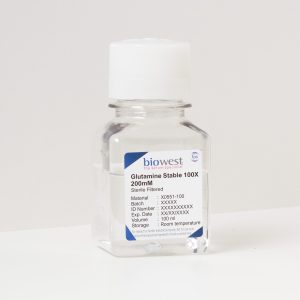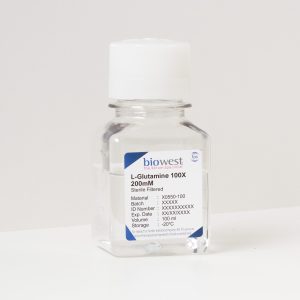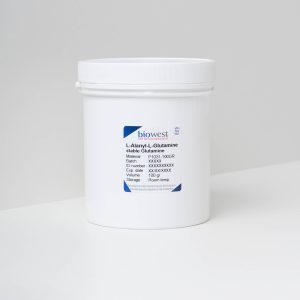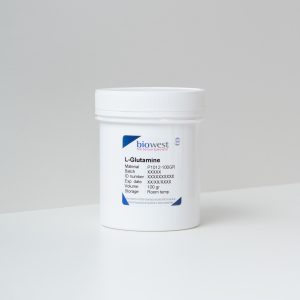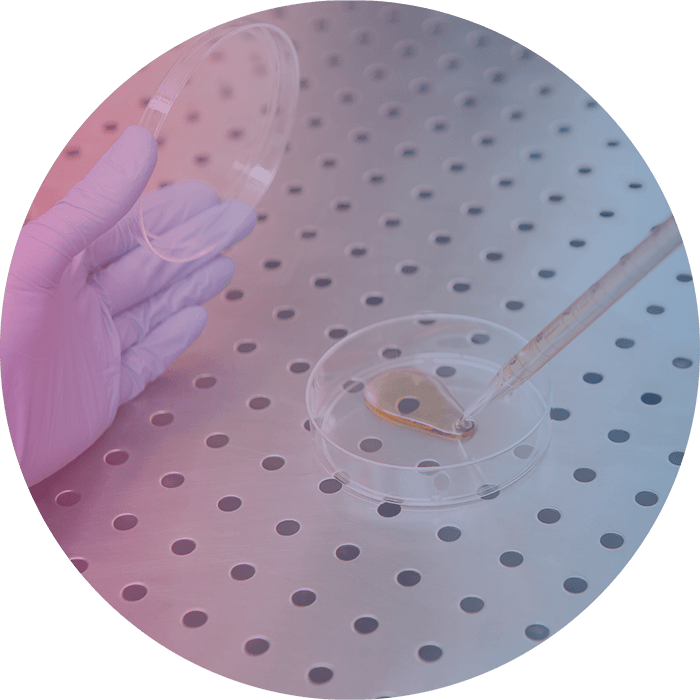
L-Glutamine is an essential amino acid required by virtually all mammalian and insect cells grown in culture. It is a crucial component of many cell culture media and serves as a major energy source for cells in culture.
L-Glutamine is very stable as dry powder and as a frozen solution. However, in liquid media, L-Glutamine can degrade relatively rapidly. L-Glutamine is also more labile in cell culture solution than other amino acids. Adding L-glutamine extemporaneously in cell culture media improves cell growth and metabolism.
Using stable L-Glutamine instead of L-Glutamine avoids this rapid degradation. Stable L-Glutamine is a dipeptide derivatives of L-Glutamine, which prevents the intramolecular cyclization reaction associated with solutions of L-Glutamine. The dipeptide derivatives are metabolized within the cells to yield L-Glutamine plus the second amino acid. This results in a more consistent delivery of L-Glutamine to cells and avoids toxic build-up of ammonia in cell cultures.
Stable L-Glutamine is therefore stable in solution and allows the formulation of cell culture media containing L-Glutamine that may be stored at 4°C for an extended period. Solutions containing these derivatives can even be autoclaved without appreciable degradation of the product (30 minutes at 121°C results in <5% loss of the product).
This feature can be especially important for ammonia-sensitive cell lines.

